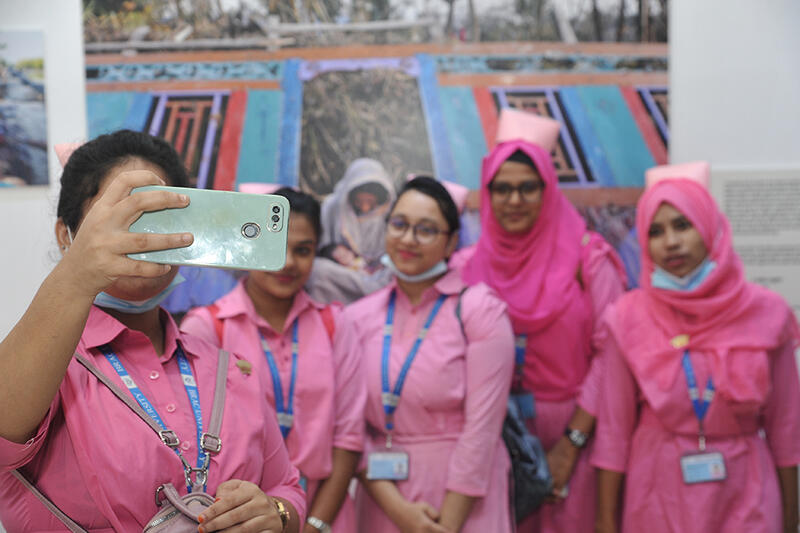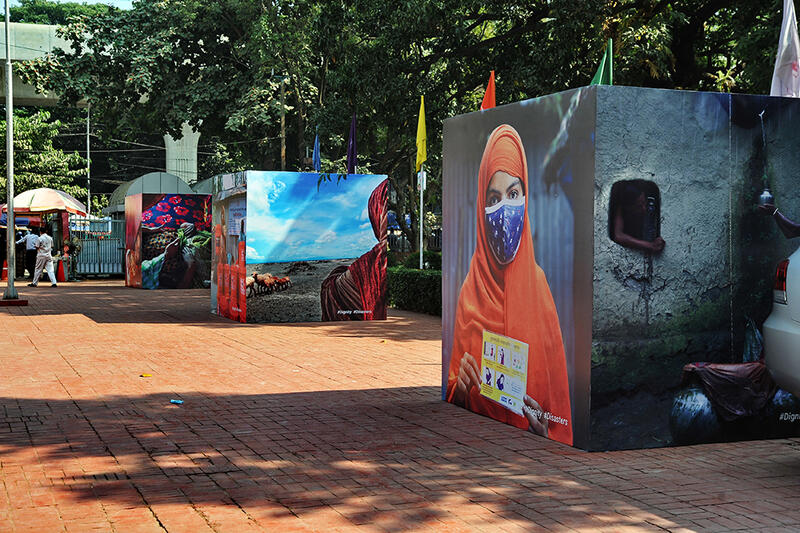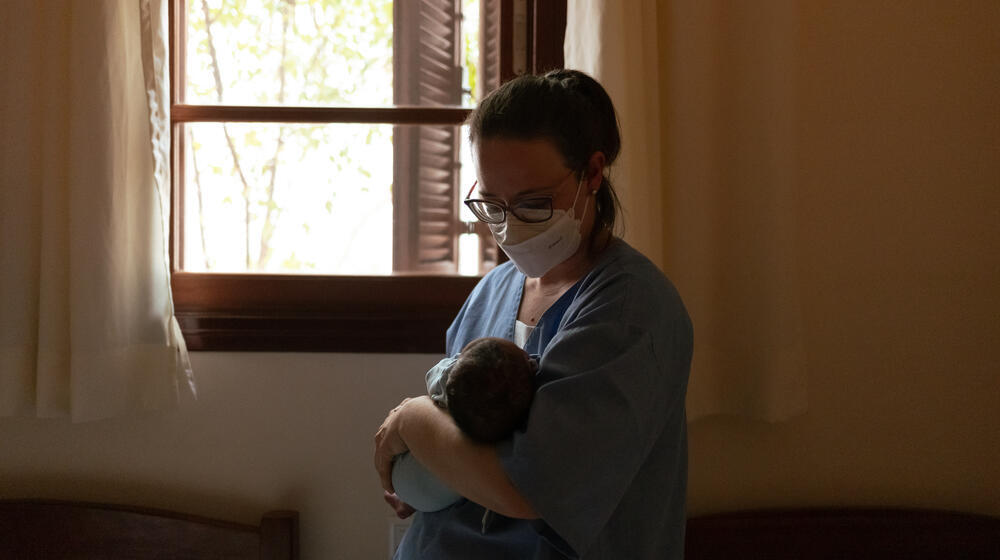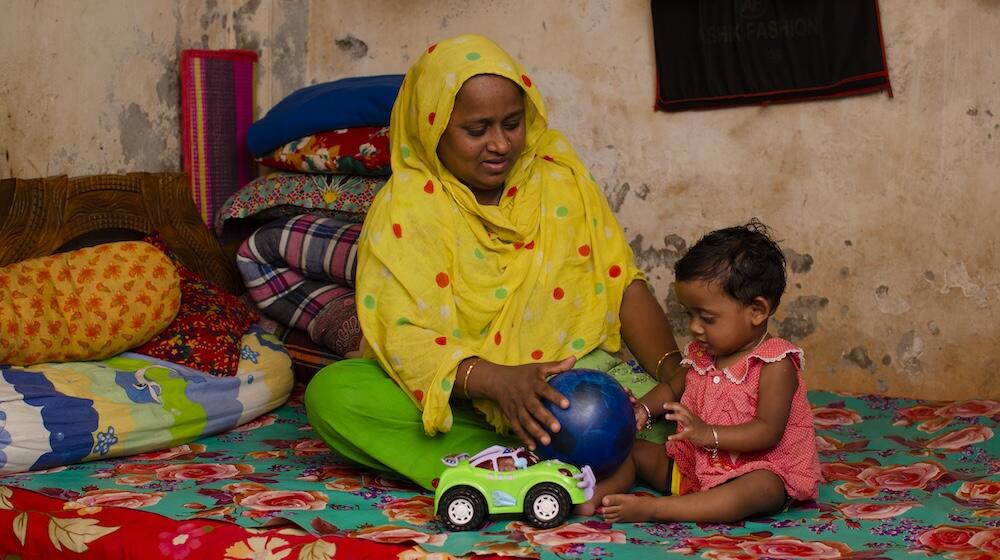
Finding Dignity in Disasters
As sea levels rise in Bangladesh, so do risks for women and girls
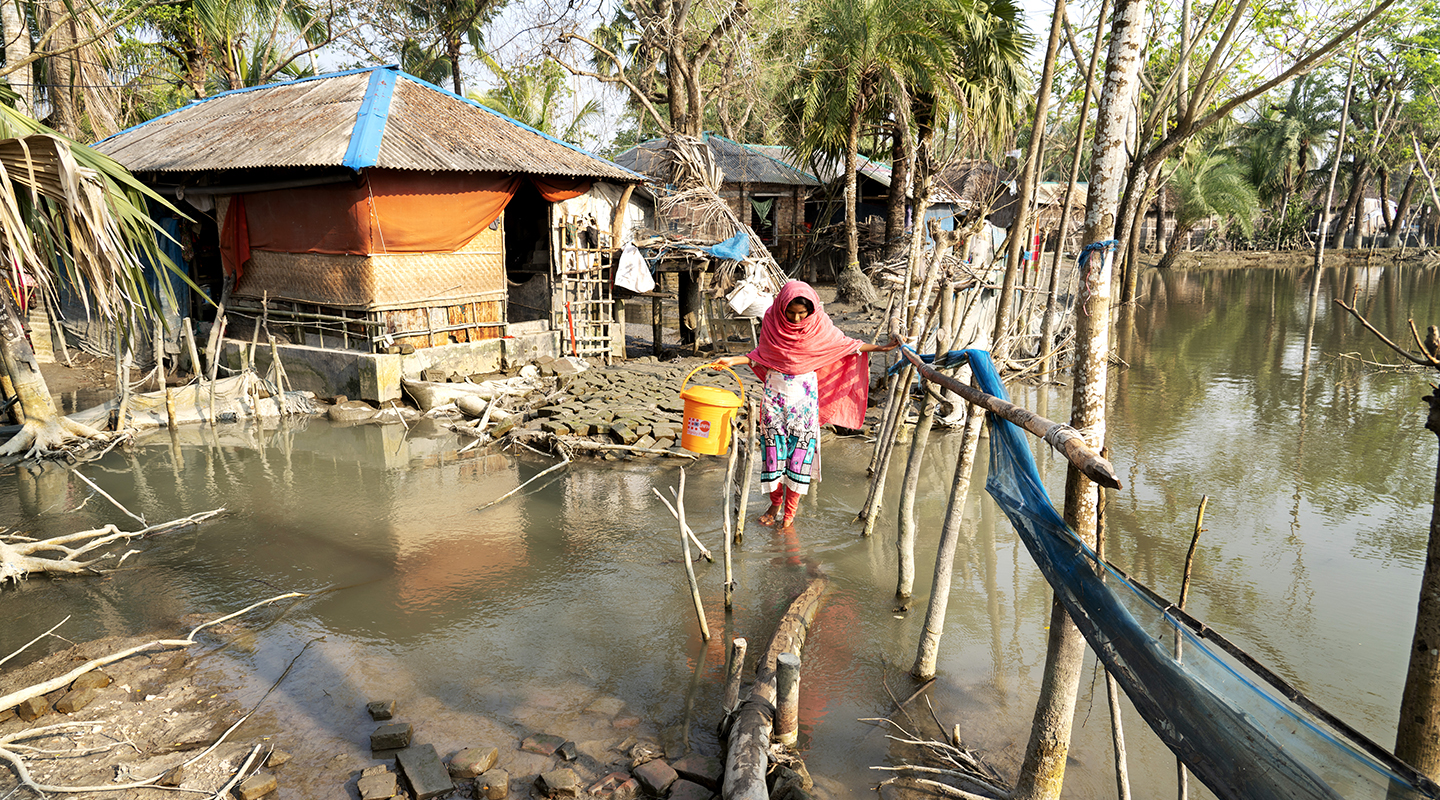
All too often, people who contribute the least to climate change are affected the most.
Such is the case in Bangladesh, one of the most climate disaster-prone countries in the world. Floods, cyclones and extreme storms frequently displace people from their homes, separating families and disrupting services.
Women and girls pay the highest price.
“When climate disaster strikes, it is a disaster for women and girls.”
– Dr. Natalia Kanem, UNFPA Executive Director
Humanitarian needs that directly impact women and girls – including access to contraception and safe births, as well as protection from violence – are often overlooked in times of crisis, when services are needed more than ever.
“When climate disaster strikes, it is a disaster for women and girls,” UNFPA Executive Director Dr. Natalia Kanem says. “We have to pre-plan. We have to be ready, not only in terms of pre-positioning supplies but changing the mentality to prioritize what women and girls are going to need.”
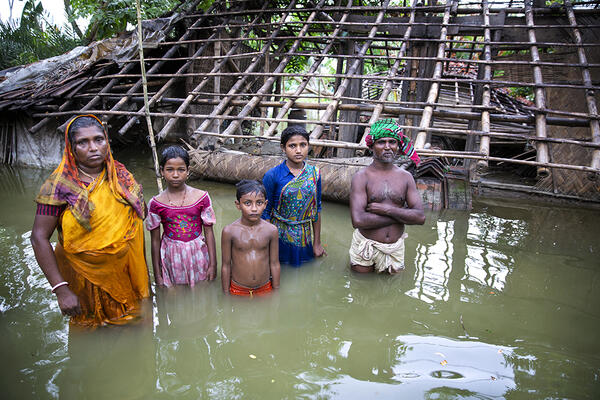
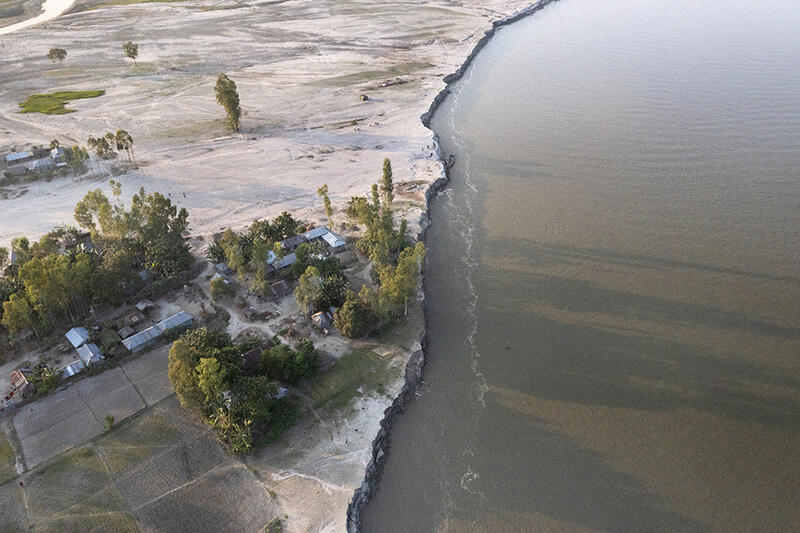
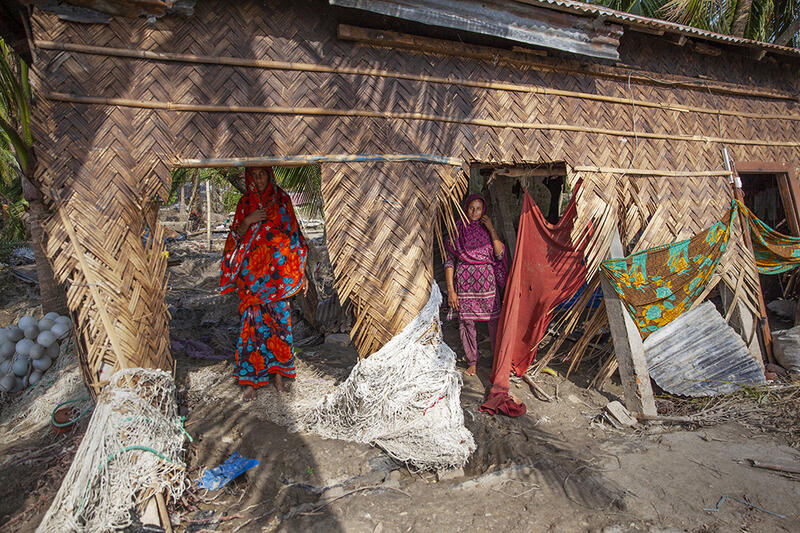
Strengthening systems and services
In response to this cycle of disaster and displacement, UNFPA works to strengthen health systems – supporting mobile clinics to ensure sexual and reproductive health, training midwives to deliver safe births, providing dignity kits with essential items – as well as to prevent and respond to gender-based violence.
But much more needs to be done to effectively protect people. Climate emergencies are wreaking havoc at a pace that frontline workers and the humanitarian community cannot manage without increased investment and political will.
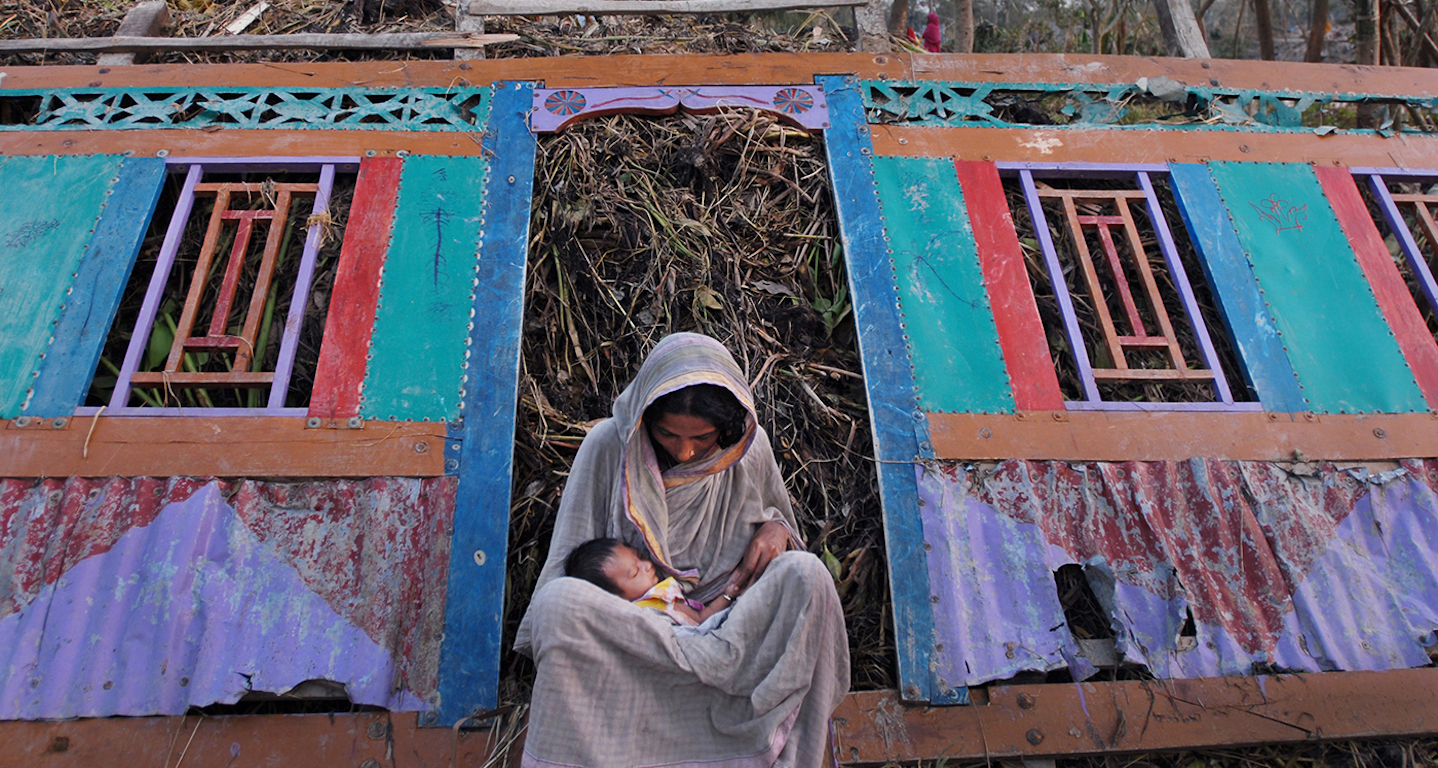
In the village of Betirgheri in the Gaibandha district, residents regularly need to prepare to relocate before high tides hit their homes. At least once a year, the tides flood the village.
It’s a common occurrence in rural areas across the country, with families packing up to get to higher ground. The relocation means a disruption to services and increased risks for women and girls.
When the storms and floodwaters settle, it’s time to deal with the aftermath – while bracing for the next disaster.
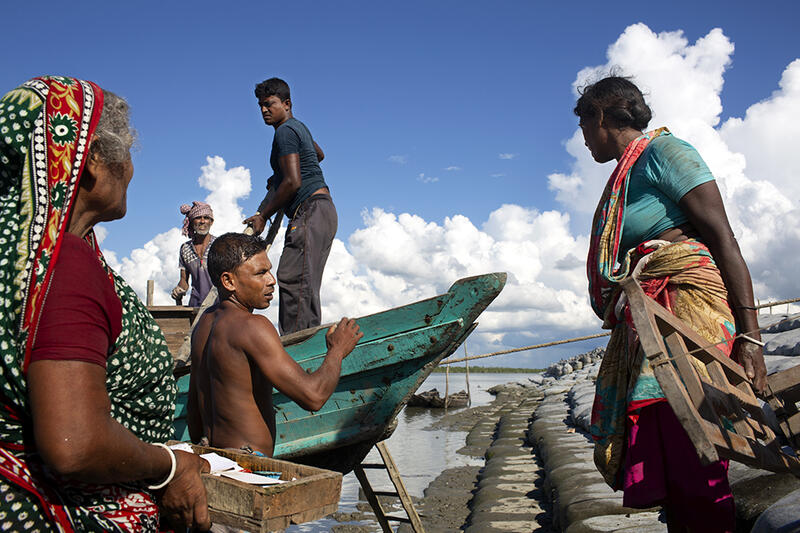
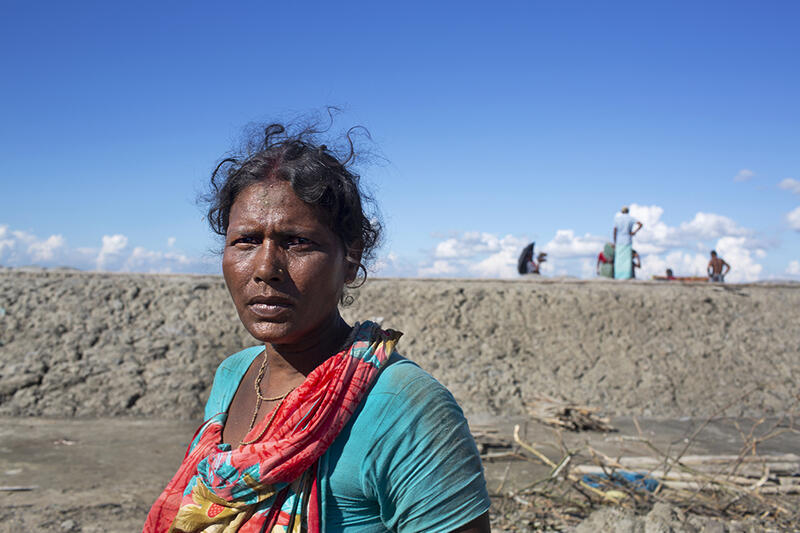
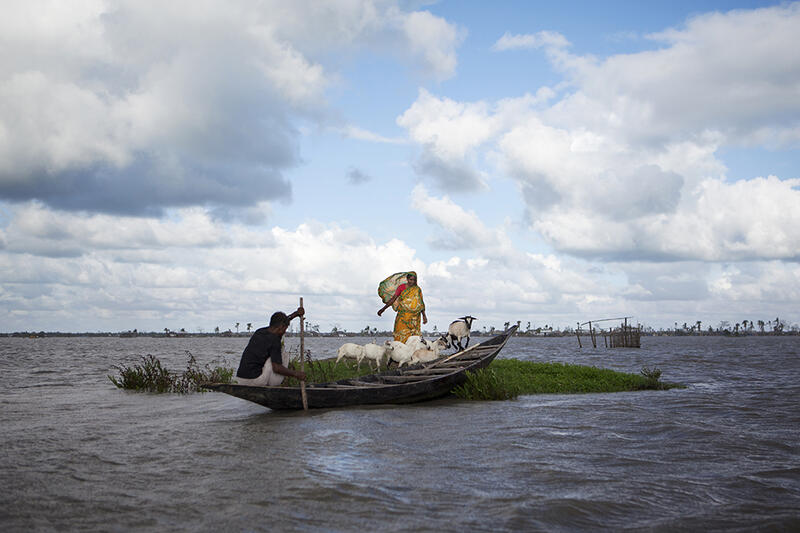
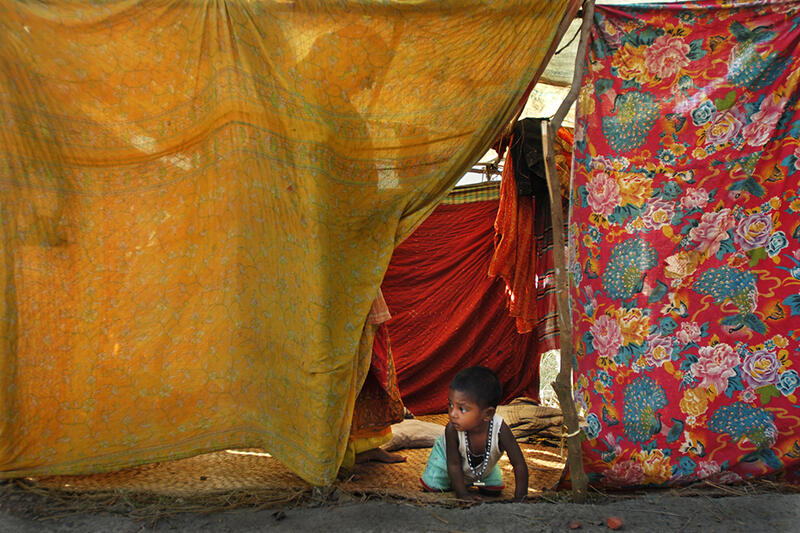
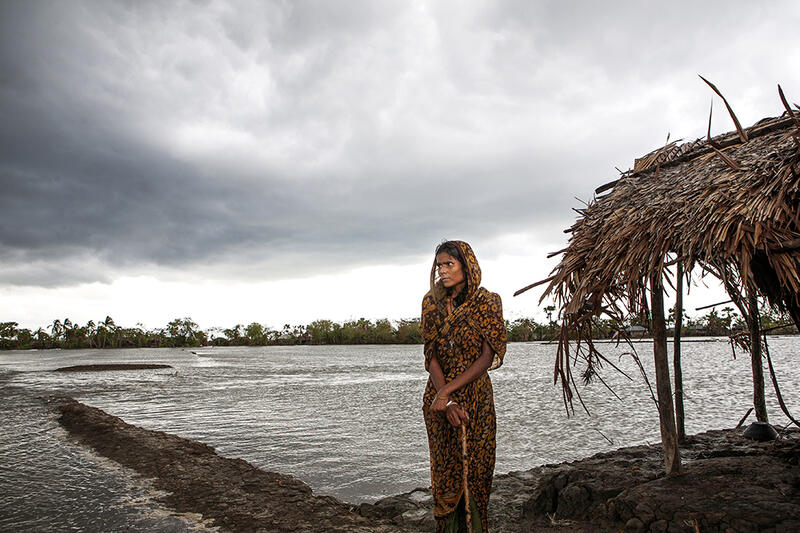
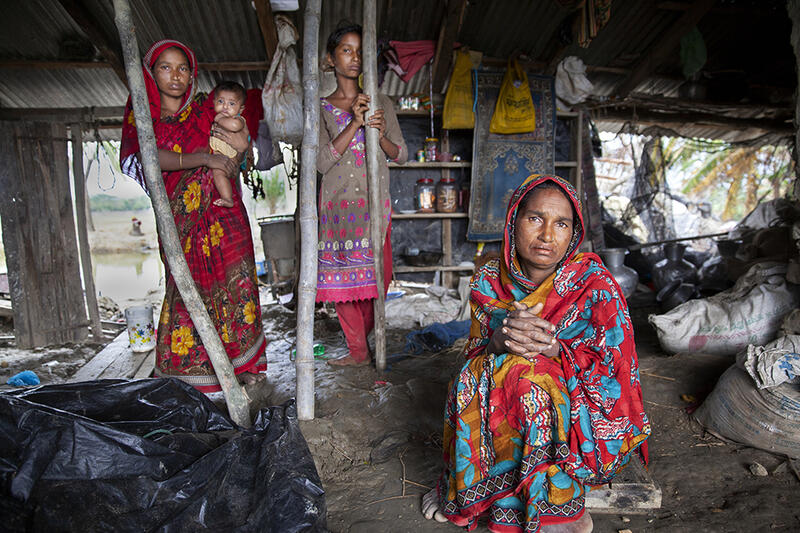
Repeated climate crises increase poverty, each one taking its toll. As families struggle to find work, provide shelter and put food and water on the table, there’s a correlation with a spike in child marriage and other forms of gender-based violence.
Rumana Khan, a gender-based violence coordinator with UNFPA Bangladesh, says back-to-back disasters make it much harder for communities to recover and protect themselves, especially women and girls and marginalized groups. “A large proportion of the population is still below the poverty line, and recurring disasters reduce their ability to safeguard themselves.”
UNFPA works with local organizations to deliver services that reduce and respond to gender-based violence – a problem that is inadequately addressed in disaster responses. While progress has been made, a desperate need for investment remains.
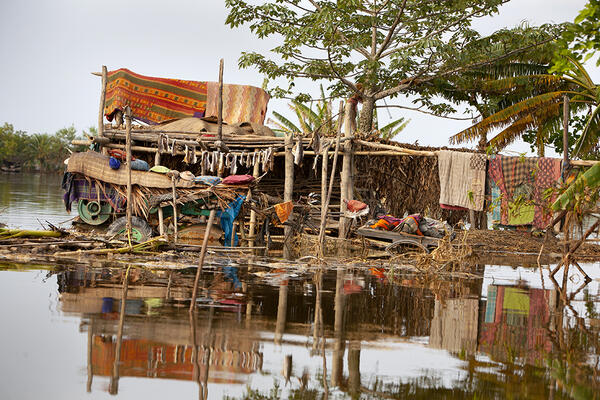
Childbirth in a crisis
Giving birth in the midst of a fierce storm or flood or its aftermath is daunting, and dangerous.
Globally, a woman dies every two minutes in childbirth. In a crisis, when it becomes more difficult to access trained birth attendants, risks for the welfare of pregnant women and newborns rise.
“If I had come to the hospital any later, there would have been a serious risk of me or the baby dying,” says Sujiya, 18, from the village of Majiya, a flood-risk area in northeast Bangladesh.
Sujiya went into labour surrounded by floodwaters. Pregnant with her first child, she began having contractions at night. The village had flooded a month earlier, and the water in her home was still up to her knees. The high waters meant the traditional birth attendant – the dai – couldn’t reach her until the next morning, and when the dai did arrive, there were medical complications.
Sujiya urgently needed to get to a clinic, but finding a boat wasn’t easy. “My father and husband had to look for a boat for an hour and a half,” she says. “Then it took another hour and a half for me to get here, during which my condition worsened.”
She credits the midwives – who delivered her baby safely at the Sardar Upazila Health Complex in the Sunamganj District – with saving her life.
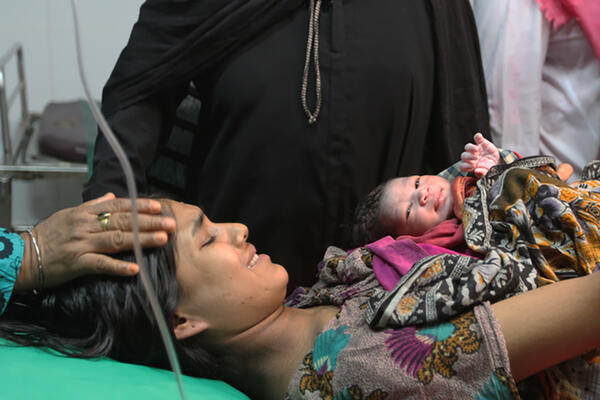
To reduce the risks for women like Sujiya, UNFPA and partners are training midwives and strengthening sexual and reproductive health services in remote areas across Bangladesh that are most affected by climate change.
Hazera, a UNFPA-supported midwife who helped deliver Sujiya’s baby boy safely, recalls, “The floods occurred so fast. In the morning, I came to the hospital for a normal workday. When I left home, there was chaos everywhere.”
At the time, Hazera was five months pregnant herself, yet she navigated the floodwaters to get to work, taking a boat instead of walking as usual. “If we could not find a boat, we had to walk through the water to the hospital – the water level would reach my chest and I would perform my duties for the rest of the day in wet clothes,” she says.
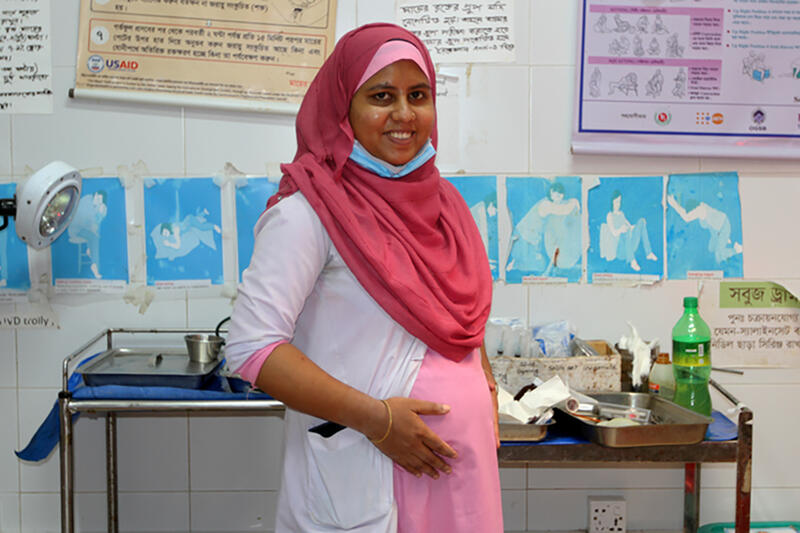
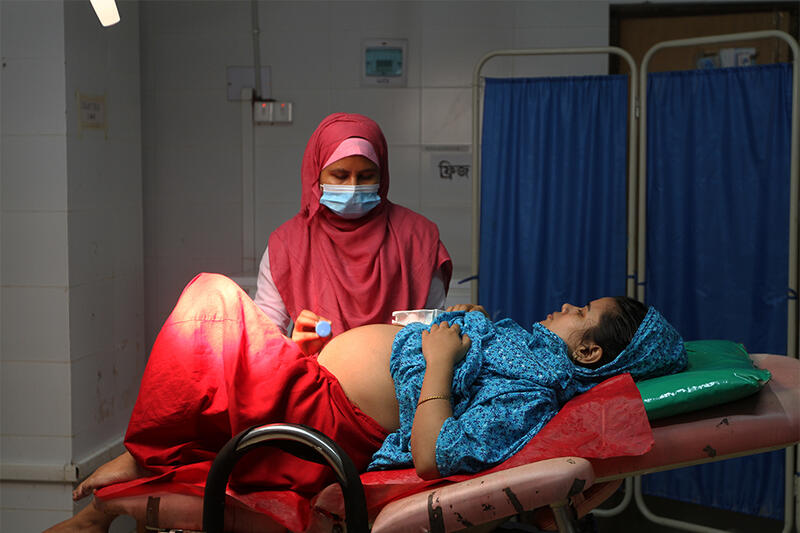
“None of us stayed back at home, because we knew that if there were no midwives or nurses in the hospital, the life of pregnant mothers would be at risk,” Hazera recalls. “During the first three days, there was no electricity, so at night, we did all the deliveries, surgeries and other necessary procedures by candlelight.”
Dignity kits connect people to services
With increased support from donors, UNFPA can continue to train midwives and reduce maternal and newborn deaths, unintended pregnancies and gender-based violence around the world.
Through the distribution of dignity kits – including clothing, menstrual hygiene products, washing materials and torches – UNFPA meets the immediate needs of women and girls. The kit distribution is also a key way to gather together women during a crisis, making it possible to then connect them with services.
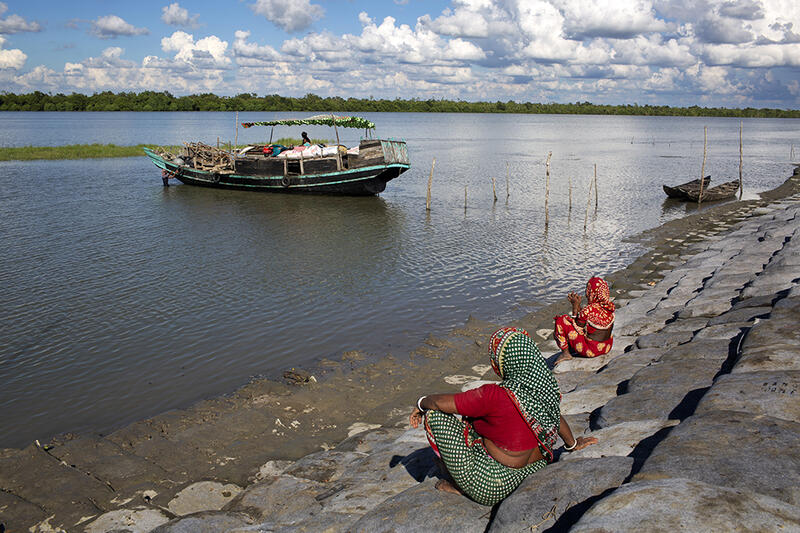
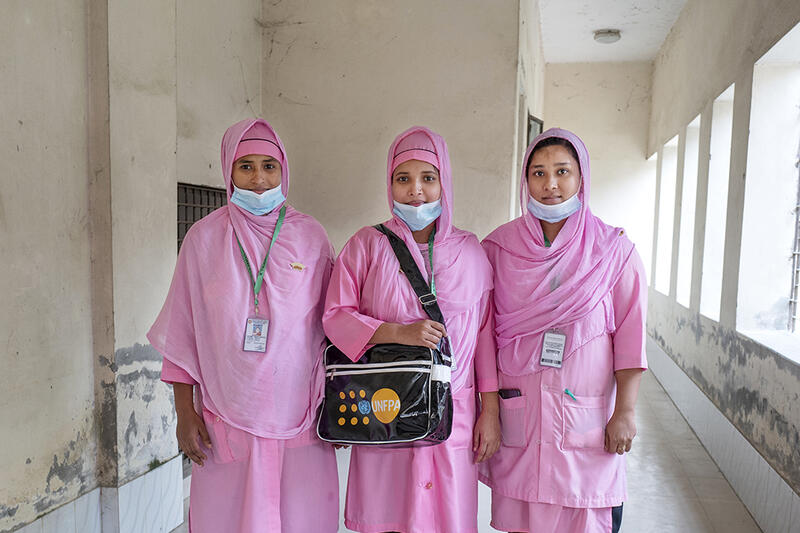
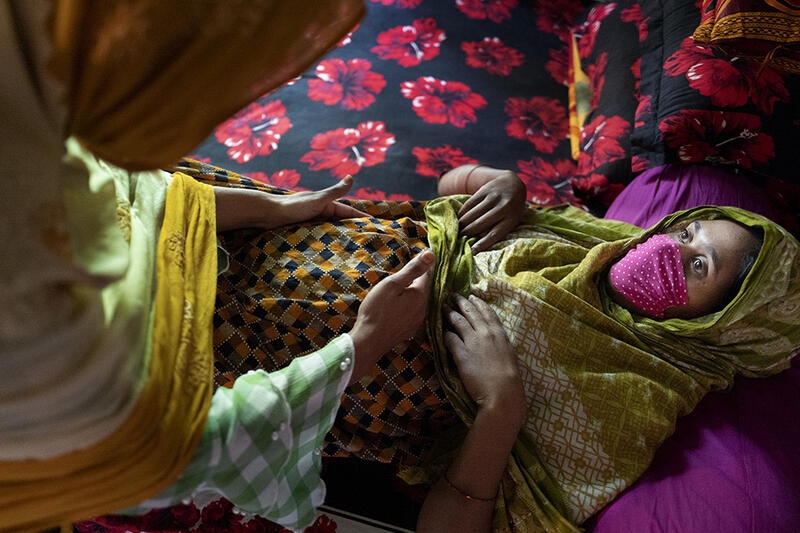
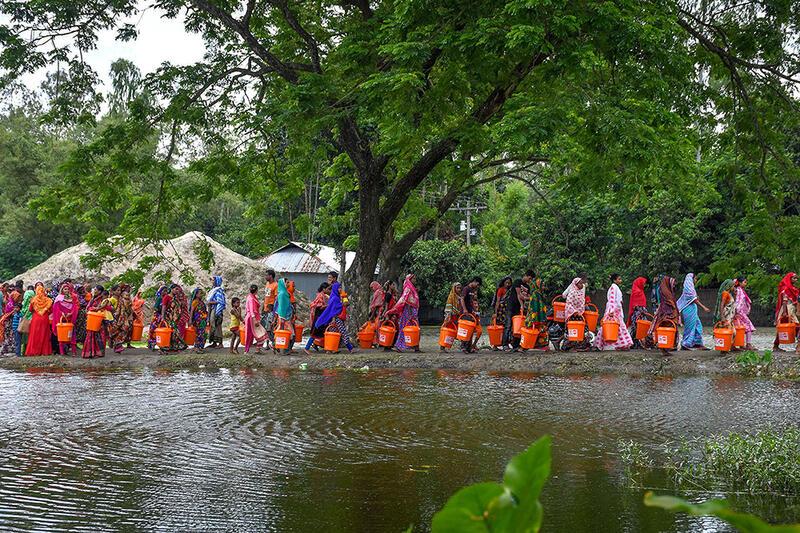
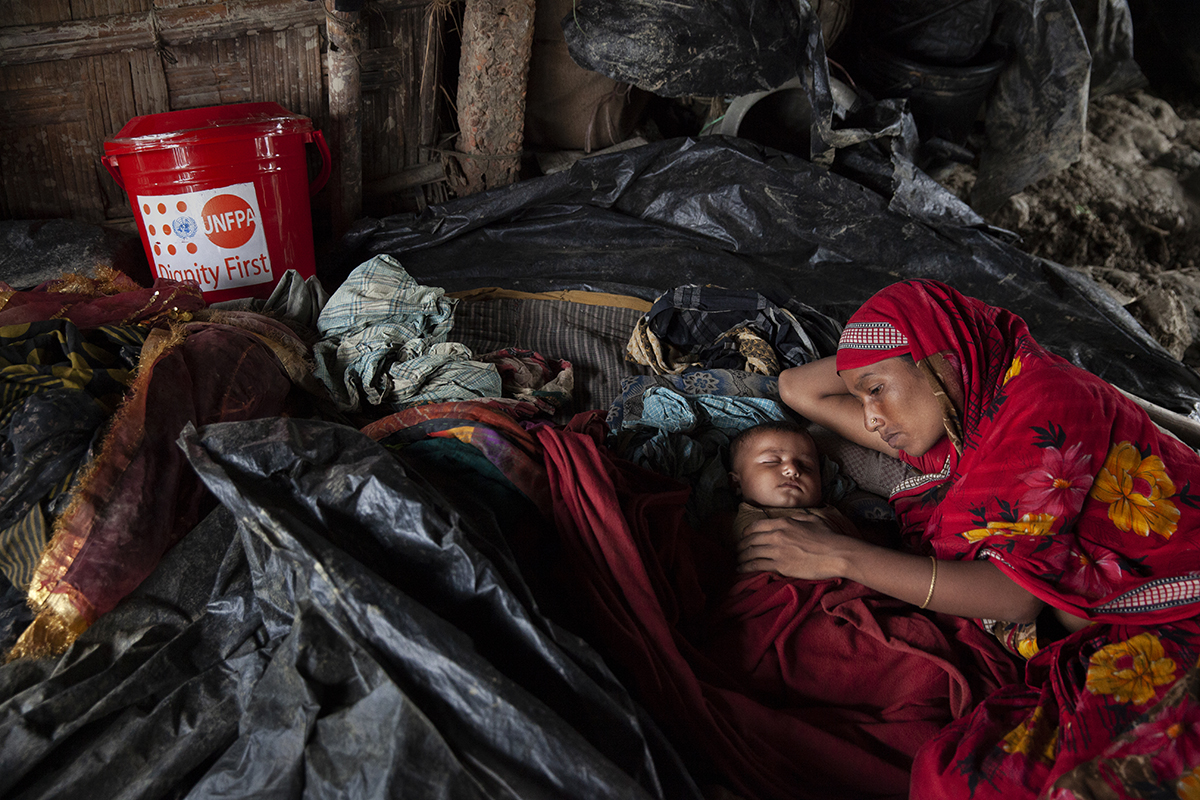
UNFPA supports the government of Bangladesh to ensure that support is on the ground before, during and after a crisis. UNFPA in Asia and the Pacific is calling on policymakers in countries across the region to increase investments, through its advocacy campaign Dignity and Disasters.
The rights of women and girls must be central to disaster preparedness and response plans. We can no longer afford for essential needs to be an afterthought. The cost of inaction will be that women and girls are left even further behind – facing life-threatening violence and increased risk of death during pregnancy and childbirth – with ripple effects that extend well beyond the floodwaters.
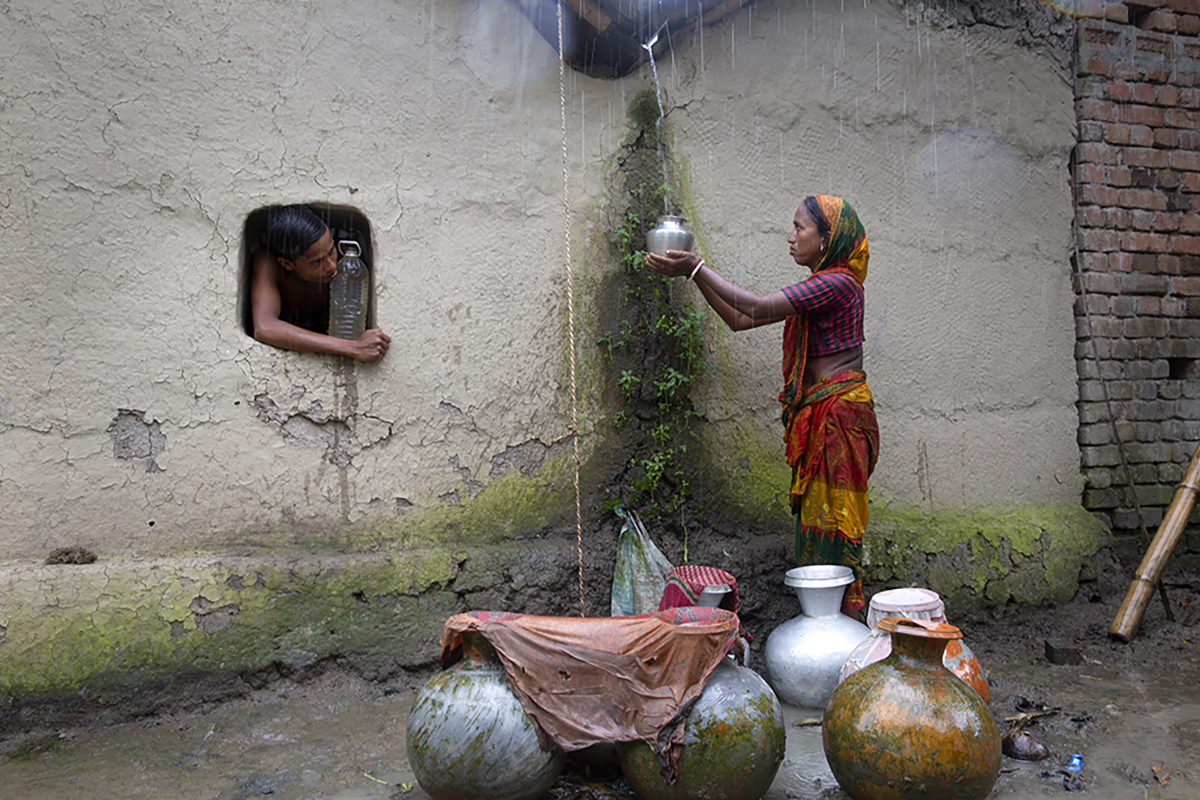
Pictures in this photo story were exhibited in Bangladesh, in partnership with the Australian Government's Department of Foreign Affairs and Trade (DFAT). You can visit the virtual exhibition here.
